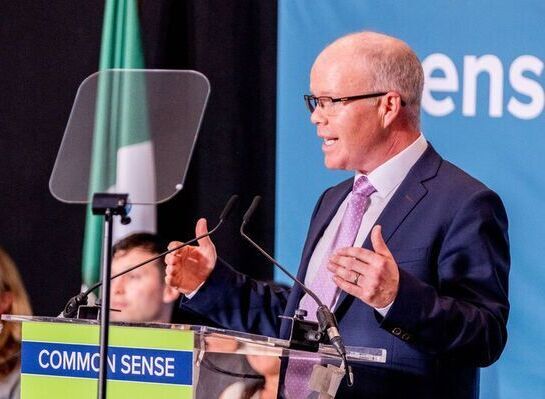Donald Trump and Hillary Clinton
By Ray O’Hanlon
Immigration, long a staple presidential debate issue, will get its turn in tonight’s third and final encounter between Hillary Clinton and Donald Trump.
That’s if the candidates manage to stick to the script.
Both Trump and Clinton agree that America should admit legal immigrants.
Mr. Trump’s wife, Melania, is herself an immigrant.
But the candidates diverge sharply, very sharply, on the way that the country should approach the presence of millions of undocumented and illegal men, women and children.
Trump’s vision of a wall along the border with Mexico could not provide a more glaring contrast to Clinton’s proposals for comprehensive immigration reform.
The two candidates are so far apart on the issue of undocumented and illegals that any semblance of a middle ground is unlikely to emerge in tonight’s encounter in Las Vegas.
This, at least, will present voters with a clear cut choice.
With less than three weeks to go, Clinton’s reform advocacy would appear to have the edge with a CBS tracking poll giving her a sustained seven point advantage over Trump on immigration.
Trump’s focus has been almost entirely on deporting people and building the wall.
He’s not going to back away from these positions at this juncture.
Indeed, his very first TV ad after his nomination as Republican candidate for the presidency was on immigration.
It targeted Hillary Clinton’s immigration proposals with these words: “In Hillary Clinton’s America, the system stays rigged against Americans. Syrian refugees flood in. Illegal immigrants convicted of crimes get to stay, collecting social security benefits, skipping the line. Our border open.”
“It’s more of the same. But worse.”
And then the line for Trump’s America: “Donald Trump’s America is secure. Terrorists and dangerous criminals: kept out. The border: secure. Our families: safe. Change that makes America safe again.”
The Republican Party platform supports the southern border wall and states that “illegal immigration endangers everyone, exploits the taxpayers, and insults all who aspire to enter America legally.
It further states: “We oppose any form of amnesty for those who, by breaking the law, have disadvantaged those who have obeyed it.”
“The executive amnesties of 2012 and 2014 are a direct violation of federal law and usurp the powers of Congress as outlined in Article 1 of the Constitution.
“These unlawful amnesties must be immediately rescinded by a Republican president.
“In a time of terrorism, drug cartels, human trafficking and criminal gangs, the presence of millions of unidentified individuals in this country poses grave risks to the safety and sovereignty of the United States.
“Our highest priority, therefore, must be to secure our borders and all ports of entry and to enforce our immigration laws.”
For the undocumented Irish, the highest priority is simply to cling to a tenuous American life.
And as immigration rises again tonight as a border in its own right between America’s two main parties, thousands of them, some living here since the Reagan years, will be shaking their heads.
It’s a fair bet that they will be a good deal more receptive to Hillary’s pro-reform stance.
But what chance such reform?
Comprehensive immigration reform has been a political staple for years.
It has marched right up to the finishing line more than once, only to stumble at the last moment.
Some of the biggest political names in national politics have been associated with the long running battle to have reform enshrined in law: Kennedy, McCain, Schumer among others.
Now Hillary Clinton.
The Democratic Party platform, which Hillary counts as her election manifesto, states that America needs comprehensive immigration reform with a pathway to citizenship.
And it further states that Hillary Clinton, as president, will:
- Enact comprehensive immigration reform to create a pathway to citizenship, keep families together, and enable millions of workers to come out of the shadows.
- End family detention and close private immigrant detention centers.
- Defend President Obama’s executive actions to provide deportation relief for DREAMers and parents of Americans and lawful residents, and extend those actions to additional persons with sympathetic cases if Congress refuses to act.
Those executive actions, which would have a positive effect on the lives of an unknown number of undocumented Irish families, have a shuddered to a halt as a result of congressional hostility and court decisions.
There is no guarantee, of course, that even if Clinton wins on November 8 that she will be in a position to work with a Congress favorable to comprehensive reform.
Her party’s platform allows for such a possibility when it states: “If Congress continues its refusal to act on comprehensive immigration reform, Hillary will put in place a simple, straightforward, accessible system for parents of DREAMers and others with a history of service and contribution to their communities to be able to make their case and be eligible for deferred action as well.”
The undocumented Irish will be hoping, if for nothing else, that 2017 might see a lifting of the bars against returning to the U.S. should they travel back to Ireland.
The Democratic platform speaks to this issue when it pledges to end the three and ten year bars.
“Current immigration law forces families - especially those whose members have different citizenship or immigration statuses - into a heartbreaking dilemma: pursue a green card by leaving the country and your loved ones behind, or remain in the shadows. Hillary will call on Congress to repeal the 3 and 10 year bars to keep families together.”
For the undocumented Irish “heartbreaking dilemma” is something of an understatement.
Given the difficulty of legally emigrating from Ireland to the U.S. since passage of the 1965 immigration reform act, returning to Ireland, for most, would not be a mission in pursuit of a green card.
Rather, it might be to attend a personal or family gathering: a marriage of a sibling or friend, the funeral of a loved one, a parent.
The undocumented Irish do not face the potential problem of a big wall keeping them out of America.
It’s more a case of being legally walled in right now.









